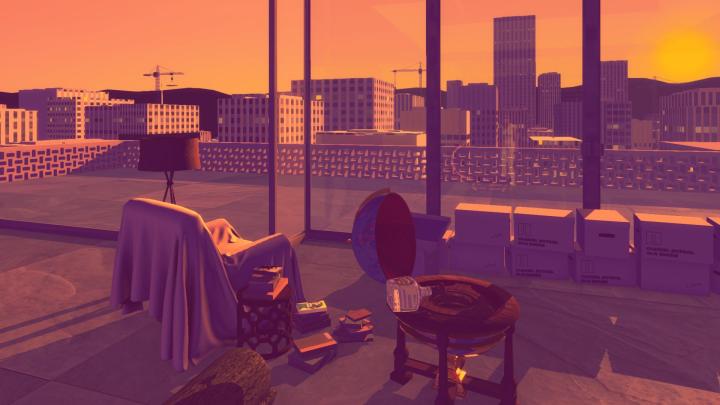
Founded in Belgium in 2002, Tale of Tales defined a then-burgeoning indie scene with landmark releases like The Endless Forest and The Graveyard. Despite the critical acclaim it won with its early releases, Tale of Tales didn’t enjoy the same level of financial success with Sunset, which it describes as an attempt to appeal to a larger audience.
“In its 12 year existence Tale of Tales has always teetered on the edge of sustainability, combining art grants and commercial revenue to fund our exploration of video games as an expressive medium,” Michaël Samyn & Auriea Harvey wrote in the studio’s farewell blog post. “Our desire to reach a wider audience was not motivated by a need for money but by a feeling of moral obligation. We felt we had to at least try to reach as many people as possible. To make the world a better place through the sharing of art as videogames, you know.”
The pair notes that Sunset only sold around 4,000 units since its launch earlier this year, including copies given to Kickstarter campaign backers. These unexpectedly low sales numbers, combined with a current lack of alternative funding sources in Belgium, drove the decision to close up shop.
Sunset is a 1970s-era adventure game that puts players in the role of a housekeeper during a period of revolution in Latin America. As players perform household chores, they uncover clues hinting at their employer’s role in a plan to overthrow a cruel dictator.
Tale of Tales established itself as a creative force in 2008 with The Graveyard, an interactive vignette featuring an elderly woman. Widely released as a free trial version for PCs, the full paid edition of the game notably introduces the possibility of the main character’s death at the end of the story.
Other Tale of Tales releases include multiplayer nature sim The Endless Forest, the “living tableau” Fatale, and 2013’s flora-themed experimental game Luxuria Superbia.


